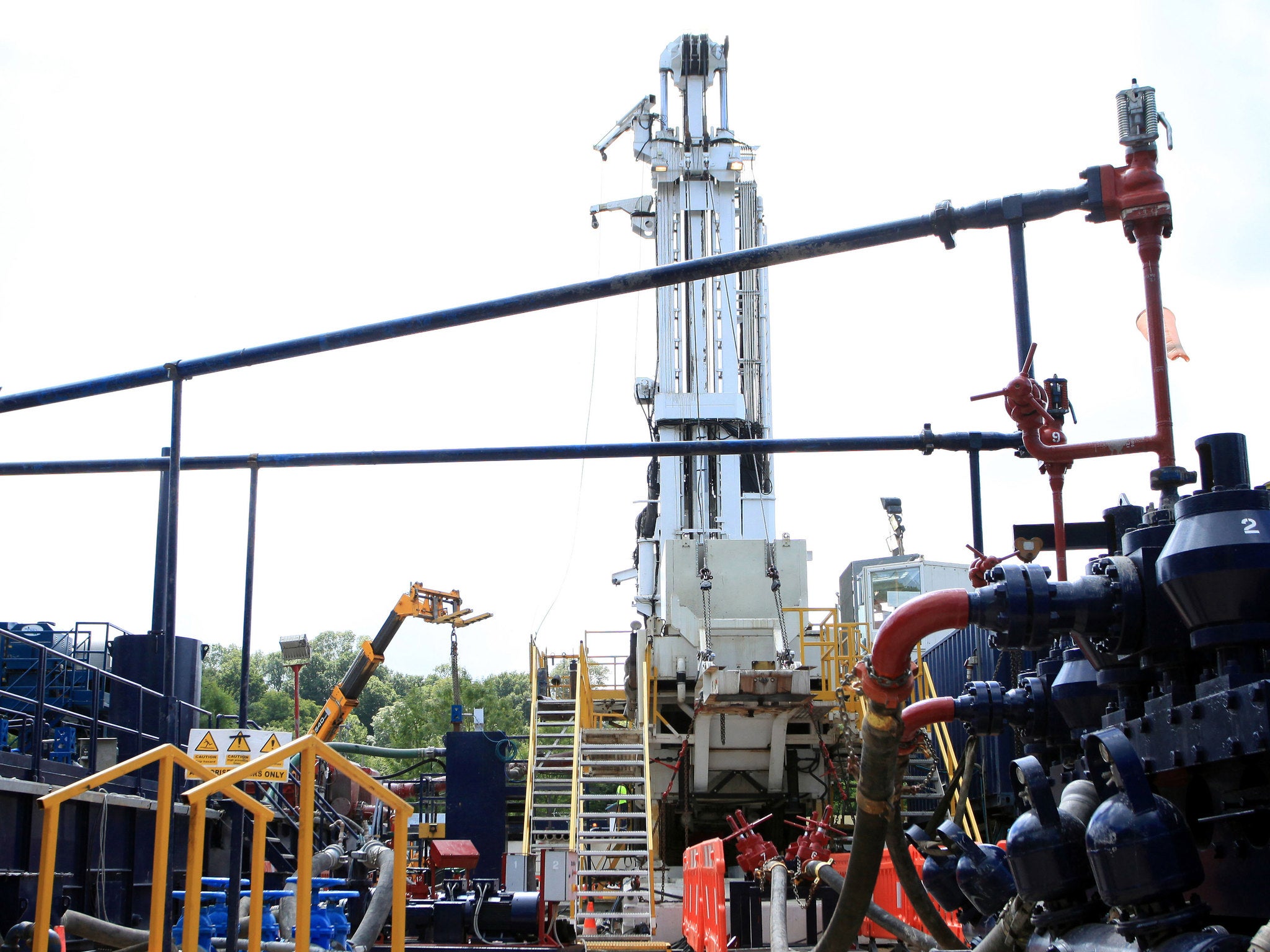Gatwick oil discovery: Up to 100 billion barrels discovered underground in biggest onshore find for three decades
UKOG share price up 200% as firm hopes to meet 10-30% of UK oil demand by 2030

UK oil producers are celebrating what they are calling the biggest onshore oil discovery in the last 30 years in the land near Gatwick Airport.
An exploration firm has confirmed the land under Horse Hill near Gatwick could contain 158 million barrels of oil per square mile – up to 100 billion barrels in total. The firm is hoping it could meet between 10 per cent and 30 per cent of UK demand for oil by 2030.
"Based on what we've found here, we're looking at between 50 and 100 billion barrels of oil in place in the ground," said Steven Sanderson, UKOG chief executive.
"We believe we can recover between 5 per cent and 15 per cent of the oil in the ground, which by 2030 could mean that we produce 10 per cent to 30 per cent of the UK's oil demand from within the Weald area."
While the discovery won’t immediately affect the price of petrol at the pump – which is governed by the global price of oil – it could swell tax coffers and boost UK jobs in the beleaguered UK oil and gas sector.
Oil and gas companies are the UK’s largest industrial investor. In 2012-13, the industry paid £6.5 billion in corporate taxes on production, over 15 per cent of all corporate taxes in the UK.
Oil and gas employs 450,000 people across the UK but jobs in the sector have been declining with North Sea oil output. Osborne recently announced plans to try and revive the North Sea oil industry with £1.3 billion in tax breaks in the Budget.
The discovery is good news for investors in UKOG, which owns a 30 per cent stake in Horse Hill - a company set up to dig for oil in the area. The UKOG share price exploded on the news: by press time it was up 2.1p or 190 per cent on Thursday to 3.2p.
"We think we've found a very significant discovery here, probably the largest [onshore in the UK] in the last 30 years, and we think it has national significance," Stephen Sanderson, UKOG's chief executive told the BBC.
"Drilling the deepest well in the basin in 30 years, together with the ability to use concepts, techniques and technology unavailable in the 1980s, has provided new cutting-edge data and interpretations to comprehensively change the understanding of the area's potential oil resources."
However, UKOG admitted that only a small portion of that estimated figure would actually be recovered but described the find as a "world class potential resource". It believes that between three per cent and 15 per cent of the oil could be extracted.
The Horse Hill licences cover 55 square miles of the Weald Basin in southern England - an area that has been heavily licenced for onshore oil exploration. An interactive map by the UK Oil and Gas Authority shows where licences are held and by whom.
UKOG says oil is located within the Upper Jurassic Kimmeridge formation between 2,500ft (762m) and 3,000ft (914m) below the surface.
UKOG claims it does not plan on using fracking as a method of extracting the oil. It says that the oil contained below Horse Hill in rocks that are naturally fractured. This means that oil reservoirs could potentially be produced using "conventional horizontal drilling and completion techniques".
Greenpeace chief scientist Doug Parr condemned those 'rubbing their hands' on the news. "We already have more than enough coal, oil, and gas reserves to fry the planet," Parr said. "It's time we uncoupled our economy from the dangerous roller-coaster of fossil fuels and invested in the clean technologies that can provide safe and cheap energy for decades to come."
Subscribe to Independent Premium to bookmark this article
Want to bookmark your favourite articles and stories to read or reference later? Start your Independent Premium subscription today.

Join our commenting forum
Join thought-provoking conversations, follow other Independent readers and see their replies